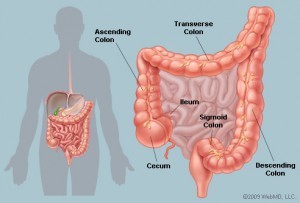 A recent review of past research has confirmed that individuals with diabetes are at an increased risk of developing colon cancer. However, scientists aren’t sure why the connection exists or what can be done to lower the risk. The findings were reported in the American Journal of Gastroenterology.
A recent review of past research has confirmed that individuals with diabetes are at an increased risk of developing colon cancer. However, scientists aren’t sure why the connection exists or what can be done to lower the risk. The findings were reported in the American Journal of Gastroenterology.
Researchers analyzed the results from 14 international studies, finding that on average, individuals with diabetes were 38% more likely to develop colon cancer than those who did not have diabetes.
In addition, diabetic men involved in the study showed a 20% increase in risk of colon cancer over non-diabetic men. However, the results of the study did not prove that diabetes is directly related to the development of colon cancer.
The findings were produced through observational studies, which demonstrated that diabetics were more likely to be diagnosed with colon cancer than non-diabetics. Researchers adjusted for confounding factors such as age, obesity, and smoking in most of the studies, yet the connection between diabetes and cancer remained.
“I think we can make the statement that diabetes is consistently associated with colorectal cancer,” said Dr. Edward Giovannucci, with the Harvard School of Public Health. Dr. Giovannucci was not one of the researchers involved with the study.
“The cause-and-effect aspect is a bit difficult to consider since diabetes is such a complex disease,” continued Dr. Giovannucci. While he believes that the results do likely show a direct connection between diabetes and colon cancer, it’s still uncertain what factor connects the two diseases.
One theory hypothesizes that hormonal imbalances caused by diabetes could be responsible for the growth of cancer cells. Diabetics have elevated levels of the hormone insulin as well as insulin-like growth factors, which are both responsible for the growth of cells. This growth may include cancer cells.
According to Dr. Hiroki Yuhara, head of the study conducted at the University of California Berkeley, patients with diabetes are not currently advised to receive colon cancer screening more often than patients without diabetes. Yuhara says that it’s unclear whether doctors will begin recommending more frequent colon cancer screenings for diabetics.
Most individuals are advised to begin colon cancer tests at the age of 50. Such tests may include sigmoidoscopies, colonoscopies, or tests that check for the presence of blood in the stool. Individuals with risk factors for colon cancer, such as inflammatory bowel disease or family history of the disease, are advised to begin screening earlier in life. Currently, diabetes is not considered cause for recommendation of earlier screenings.
There is also evidence that the link between diabetes and colon cancer may not be as strong as once thought. Last year, researchers at the American Cancer Society published a study which found that among 184,000 older American men, diabetes was associated with a 25% increase in the risk of colon cancer. However, according to the researchers on the study, the risk was modest and was not as severe as previous studies had suggested.
It was also discovered that the link between the two diseases did not exist in women. The ACS researchers thought that the findings of the study could point to improved diabetes control, among women in particular. Better control of blood sugar would lead to reduced insulin levels, which would limit the factor that may be the link between diabetes and colon cancer.